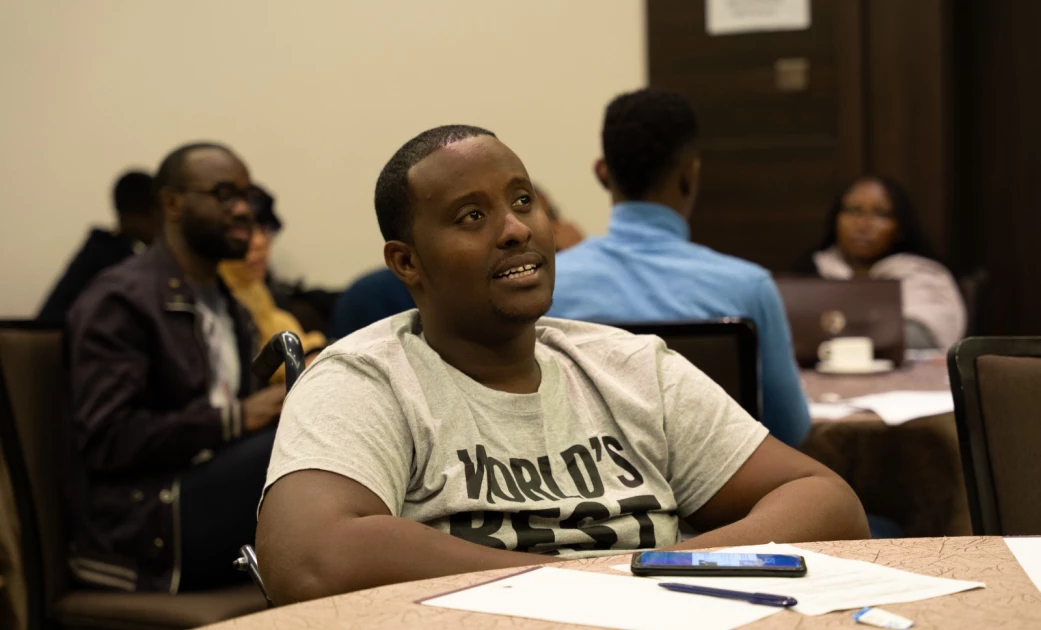After double registration, a Kenyan ID card gave me a sense of belonging

Aden Farah, Garissa resident who had been registered as a Kenyan and refugee.

Audio By Vocalize
Farah was a victim of double registration as his Kenyan parents registered him as a refugee and subsequently settled in a camp.
“When drought and hunger hit my county, my family registered as refugees in bid to get basic needs like food and education because they did not have the means to cater for us. They could not have known the implications then but left the camp when things got better,” he said.
For the 25-year-old ICT graduate, life without an identification card is filled with restrictions. He was not aware of his refugee status until after his secondary education.
“I could not move about freely, access government services, register a SIM card, open a bank account, enter into many government and corporate offices, or gain formal employment. All these things I could not do. It felt like I was in prison yet I had not committed any crime,” he said.
This further affected his political ambitions.
“I was to get nominated for an MCA position but could not secure it because I did not have an identification card, I could not vote, once my neighbour offered me a job but being stateless denied me that opportunity,” he recalled.
According to Farah, most of the victims of double registration are harrassed by authorities and can be mistaken for terrorists.
He explains that most are confined to their homes or villages and cannot walk around especially at night out of fear of being stopped and detained by police.
Being a person living with disability, his greatest fear was his children inheriting his statelessness, he did not want his future children to share his experience.
“Since I could not engage in meaningful employment, I had to delay starting a family.”
After appeals to the Kenyan government and Refugee missions, Farah was finally granted a Kenyan ID card.
“When I was finally issued with my ID I was filled with joy, I felt like a Kenyan. It's been twenty days since it was issued to me and that's how I managed to travel all the way from Garissa to Nairobi,” he said.
It is estimated that about 40,000 of the people registered in the UNHCR database are Kenyan citizens, hence the term ‘double registration’.
Many of these double registered people had their fingerprints taken during a long and devastating drought that ravaged the East African region between 2010 and 2012.


Leave a Comment